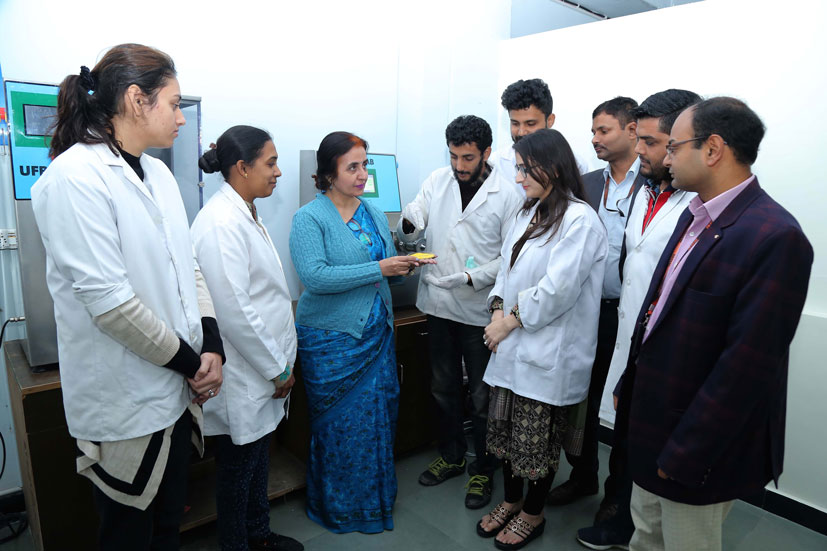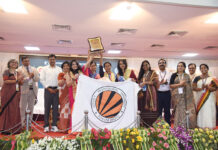Government of India has granted significant ‘Patent’ to the School of Pharmaceutical Sciences at Lovely Professional University for ‘Smart’ Drug Delivery System. Initially, this ‘Patent’ filed in 2010 for ‘drugs used in colon cancer’ has now been extended to various drugs meant for ‘Inflammatory Bowel Disease’ and ‘Helminthiasis’ also. The Smart (Targeted) drug delivery technique is to deliver medication to a patient that increases its concentration in the required parts of the body than in others.
After the grant of this valuable patent, LPU is being approached by renowned industries for taking this technology to market for a maximum of curing usage. This patent was the first to be applied in the area of the medical field from LPU. The motivation for the same was from LPU Chancellor Mr Ashok Mittal, who encouraged the research team to go ahead in spite of the fact that this technology was in the initial stage nine years ago.
While talking about the success in getting patent, Senior Dean at LPU Dr Monica Gulati informs: “Such a targeted drug delivery system has been developed by LPU to optimize drug delivery techniques. The technology has been explored and improved upon by years’ unflinching efforts of seven MPharm students and one PhD student of the School of Pharmaceutical Sciences at LPU. The Patent Office under ‘Intellectual Property India’ has issued related patent certificate No. 325490 for Improved Oral Targeted Drug Delivery System.”
With this patent, humanity is going to be benefitted in much. In fact, ‘Inflammatory bowel disease (IBD)’ is not less than common. It is the disorder that involves chronic inflammation of the digestive tract, including ‘ulcerative colitis’ and Crohn’s disease. This condition causes long-lasting inflammation and sores (ulcers) in the innermost lining of the human large intestine (colon) and rectum. Helminthiasis is caused by infection with parasitic worms when individuals come in contact with such worms through touching the soil, drinking water, or eating food that has been infected. The worms often infect the intestines, where they grow and lay eggs.
In fact, the concept of oral controlled release drug delivery system is the most preferred and convenient option as the oral route provides maximum active surface area for administration of various drugs. Usually, conventional dosage form (tablets and capsules) produces a wide range of variation in drug concentration in the bloodstream and tissues. Consequently, it sees undesirable toxicity and poor efficiency. So, the maintenance of the concentration of drug in plasma within the therapeutic index is very critical for effective treatment.
Initially worked upon in 2010 by then an MPharm student (LPU Alumna) Sima Singh, this endeavour has now seen much research work through PhD student Ankit Yadav and 7 other MPharm students Rupinderjit Kaur, Prudhvi Raj G, Souvik Mohanta, Abhinav Sharma, Harish Rathee, Mohit Basotra, Deepak Ghai. This all scientific innovation was carried out successfully under the guidance of Sr Dean Dr Monica Gulati and Dr Sachin Singh. Ankit Yadav is about to complete his PhD in this area under the joint guidance of Dr Monica Gulati and Dr Sachin Singh. He has made a tremendous contribution to the conversion of this niche technique into a platform technology. In total, eight research papers have been published in high impact journals from the research work done in this area.


















